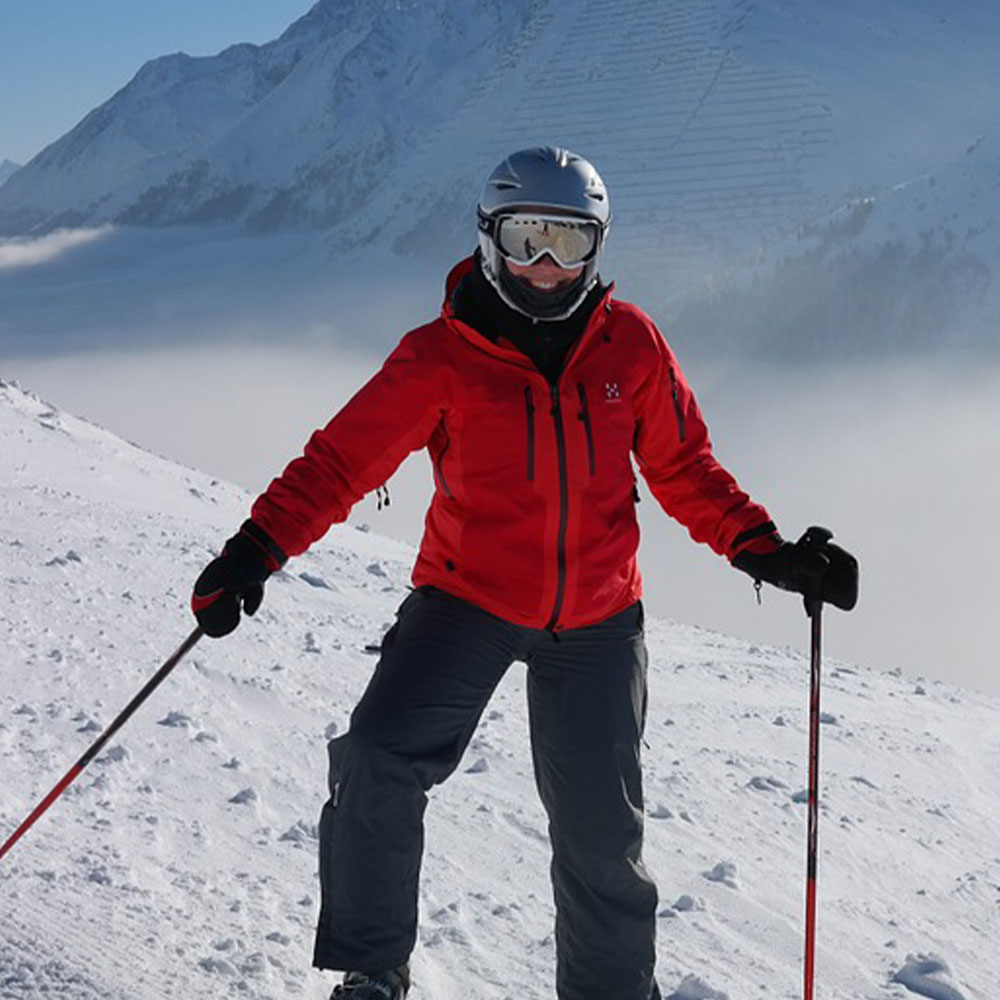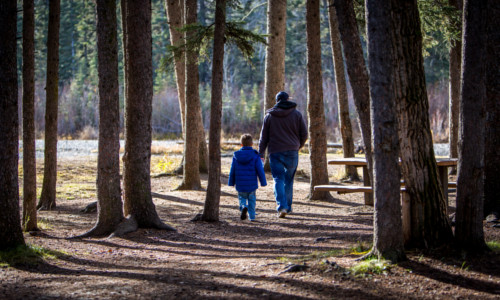Give Your Children Some Life Experience By Hiking With Them
Author

A keen runner, skier and nuts about cycling. Karl lives in Cumbria, where he loves encouraging his two children to follow in his outdoor lifestyle. Whilst out and about keeping active, Karl keeps a diary and shares it with Outdoor Look.
 Camping and backpacking with your children can provide them with some valuable life experience and teach them skills which will become more useful and stick with them as they grow older. It's one of those exciting experiences that help children become independent. With the emergence of information technology, children can be seen shirking physical activities. Young children crave for their parents’ attention. Give them the attention and approval that they deserve, but in an outdoor setting, and they’ll accept the outdoors as a reward.
Camping and backpacking with your children can provide them with some valuable life experience and teach them skills which will become more useful and stick with them as they grow older. It's one of those exciting experiences that help children become independent. With the emergence of information technology, children can be seen shirking physical activities. Young children crave for their parents’ attention. Give them the attention and approval that they deserve, but in an outdoor setting, and they’ll accept the outdoors as a reward.
Here are some tips that will come in handy while backpacking with kids
Start with shorter distances and make incremental increases in difficulty. The last thing you want is an exhausted child concluding that this hiking thing is nothing but a pain. To begin with, just undertake a leisurely hike to a lake or other destination, and camp. The camp can be used as a base for short day hikes and fishing. Retreat in case the weather looks treacherous.
The gear should be lightweight as young kids can’t carry much weight on their backs. The weight of the gear determines how quickly one moves. Having lighter gear also means that money has been spent wisely.
Food is always a major driving force. Carry a few snacks and bars as children are most likely to feel hungry during the trip. A light snack or a bar can get a tired and hungry child back on their feet.
Taking age into consideration
0-3 years old
A small child can be carried easily in a child-carrier pack. Doing this can help you cover a longer distance than when the kid is walking. But getting your child to walk is equally necessary. You want your child to explore nature rather than being carried through it on your back.
Small kids tend to feel hungry every now and then, bizarrely. Stop regularly to have a quick bite and a short breather.
If it’s cold, regularly check the toddler’s hands and feet. If they’re warm, their body’s warm too, which means everything is just as it should be. If their hands or feet feel cold, check spots like their neck to determine whether they're okay. If anything seems amiss, don't hesitate to cut the trip short. Your child's health is paramount.
Bring a lightweight tent. Little kids need little sleeping space, and you definitely need a lighter pack to accommodate them.
4-6 years old
During these years, a child is too big to carry a long distance, but too small to walk it as well. Day hiking and car camping can act as an ideal alternative. Short and steady backpacking trips can be planned near lakes that are warm enough to take a dip in.
Play a few word games while you’re hiking. It’ll keep your children busy while they hike. Bestow them with small responsibilities, like lending a hand to pitch the tent. This will start to build up their self-confidence and skill.
6-10 years old
Children grow rather quickly in these years. Kids falling under this age group are ready for a full-fledged hiking experience. A child can begin carrying their own child-sized backpack, but keep it light. Give them a sipper-bottle and a few lightweight things to carry.
Children in this age group need to drink a lot of water as they burn a lot of energy. Carry more food than usual, too. Special lunches and treats can help you make some memorable experiences.
They can now be taught camping and hiking. Also, bestow them with bigger responsibilities like lighting a fire and/or a stove - but always supervise them!
11-13 years old
This is the stage where kids can do pretty much everything. They want adventure. So, give them what they want. Give them a greater degree of freedom, and maybe let them share their tent with friends. Give your child a camera. Re-check their backpack to make sure they’ve kept everything they need.
Conclusion
Camping can teach your children to handle a greater degree of responsibility. They can think maturely if they are independent. Camping and backpacking can give them what iPads and smartphones can’t - life experience.
Author

A keen runner, skier and nuts about cycling. Karl lives in Cumbria, where he loves encouraging his two children to follow in his outdoor lifestyle. Whilst out and about keeping active, Karl keeps a diary and shares it with Outdoor Look.
Categories
- Sport (28)
- Product Reviews (3)
- Team Outdoor Look (7)
- Mike Wild (2)
- Mike Payton (2)
- Suse Hammond-Pears (3)
- Snowboarding (12)
- Latest Offers (105)
- Shop Talk (1)
- Competitions (7)
- Walking (413)
- Lifestyle Fashion (8)
- Travel (86)
- Kit Guides (176)
- Workwear Clothing (6)
- Safety Workwear (4)
- Health/Fitness (289)
- Skiing (91)
- Great Outdoors (1316)
- Cycling (92)
- January 2025
- December 2024
- November 2024
- October 2024
- September 2024
- August 2024
- July 2024
- June 2024
- May 2024
- April 2024
- March 2024
- February 2024
- January 2024
- December 2023
- November 2023
- October 2023
- September 2023
- August 2023
- July 2023
- June 2023
- May 2023
- April 2023
- March 2023
- February 2023
- January 2023
- December 2022
- November 2022
- October 2022
- September 2022
- August 2022
- July 2022
- June 2022
- May 2022
- April 2022
- March 2022
- February 2022
- January 2022
- December 2021
- November 2021
- October 2021
- September 2021
- August 2021
- July 2021
- June 2021
- May 2021
- April 2021
- March 2021
- February 2021
- January 2021
- December 2020
- November 2020
- October 2020
- September 2020
- August 2020
- July 2020
- June 2020
- May 2020
- April 2020
- March 2020
- February 2020
- January 2020
- December 2019
- November 2019
- October 2019
- September 2019
- August 2019
- July 2019
- June 2019
- May 2019
- April 2019
- March 2019
- February 2019
- January 2019
- December 2018
- November 2018
- October 2018
- September 2018
- August 2018
- July 2018
- June 2018
- May 2018
- April 2018
- March 2018
- February 2018
- January 2018
- December 2017
- November 2017
- October 2017
- September 2017
- August 2017
- July 2017
- June 2017
- May 2017
- April 2017
- March 2017
- February 2017
- January 2017
- December 2016
- November 2016
- October 2016
- September 2016
- August 2016
- July 2016
- June 2016
- May 2016
- April 2016
- March 2016
- February 2016
- January 2016
- December 2015
- November 2015
- October 2015
- September 2015
- August 2015
- July 2015
- June 2015
- May 2015
- April 2015
- March 2015
- February 2015
- January 2015
- December 2014
- November 2014
- October 2014
- September 2014
- August 2014
- July 2014
- June 2014
- May 2014
- April 2014
- March 2014
- February 2014
- January 2014
- December 2013
- November 2013
- October 2013
- September 2013
- August 2013
- July 2013
- June 2013
- May 2013
- April 2013
- March 2013
- February 2013
- January 2013
- December 2012
- November 2012
- October 2012
- September 2012
- August 2012
- July 2012
- June 2012
- May 2012
- April 2012
- March 2012
- February 2012
- January 2012
- December 2011
- November 2011
- October 2011
- September 2011
- August 2011
- May 2010
- April 2010
- March 2010
- February 2010
- January 2010
- November 2009
- October 2009
- September 2009
Submit a Comment